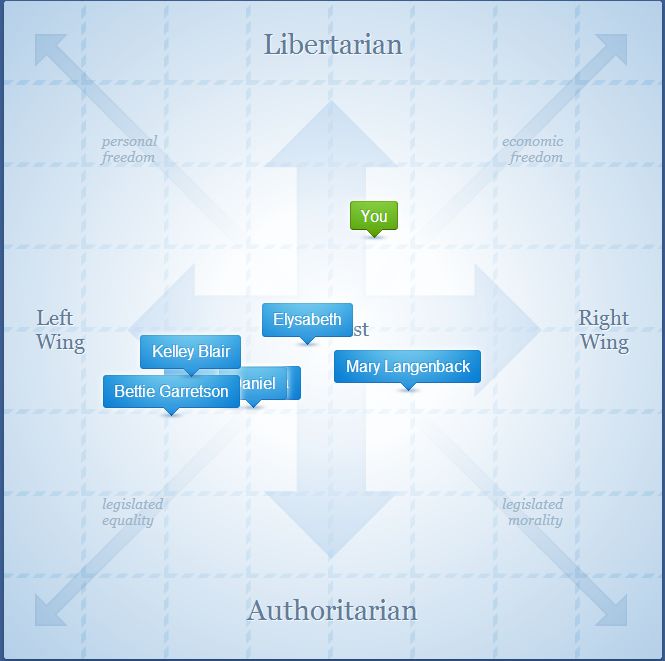What 'a Vote for a Candidate' Truly Means (in the American Government)
@mythociate (21437)
Oklahoma City, Oklahoma
August 9, 2018 10:30am CST
I'm registered Independent, and Independents can vote in Democratic 'primaries' in Oklahoma (International readers: I'll explain a little about America's voting-system below).
So I'm sitting here wondering who (of the suggested candidates ... funny that there's no blank-line in case I want to 'write someone in') I should vote-for. My first thought is "I don't know any of these people"; but I quickly remember that I'm not voting for them 'to be my friend' or 'to hang out with for a while!'
No! When you vote for someone for government-office, you are "declaring that their decisions will match the ones that you yourself would make if you were elected to that office" - they are "representing" you ... meaning that they are performing that duty instead of 'you performing that duty'!
That's why I vote according to https://www.isidewith.com/ iSideWith (though I don't think they have my Corporation Commissioner candidates listed). Because I don't (like some Republican legislators I've heard about) vote for people "because they're my friends"  I'd rather vote for 'people whose political-positions quizzes' answers most-closely match my own.'
(The way American voting works nowadays: American citizens are usually members of one of the 'Political Parties' (Republican, Democratic ... there are a few others, but they all usually count as 'Independent'---that is, 'not a member of the Republicans or Democrats'
I'd rather vote for 'people whose political-positions quizzes' answers most-closely match my own.'
(The way American voting works nowadays: American citizens are usually members of one of the 'Political Parties' (Republican, Democratic ... there are a few others, but they all usually count as 'Independent'---that is, 'not a member of the Republicans or Democrats'  )
(When electing people to serve as officers in government, each major party chooses one candidate to represent them. The parties do this by holding a Primary election (and later on we hold a General election in which we choose from among the Primaries' winners).)
)
(When electing people to serve as officers in government, each major party chooses one candidate to represent them. The parties do this by holding a Primary election (and later on we hold a General election in which we choose from among the Primaries' winners).)
 I'd rather vote for 'people whose political-positions quizzes' answers most-closely match my own.'
(The way American voting works nowadays: American citizens are usually members of one of the 'Political Parties' (Republican, Democratic ... there are a few others, but they all usually count as 'Independent'---that is, 'not a member of the Republicans or Democrats'
I'd rather vote for 'people whose political-positions quizzes' answers most-closely match my own.'
(The way American voting works nowadays: American citizens are usually members of one of the 'Political Parties' (Republican, Democratic ... there are a few others, but they all usually count as 'Independent'---that is, 'not a member of the Republicans or Democrats'  )
(When electing people to serve as officers in government, each major party chooses one candidate to represent them. The parties do this by holding a Primary election (and later on we hold a General election in which we choose from among the Primaries' winners).)
)
(When electing people to serve as officers in government, each major party chooses one candidate to represent them. The parties do this by holding a Primary election (and later on we hold a General election in which we choose from among the Primaries' winners).)No responses





